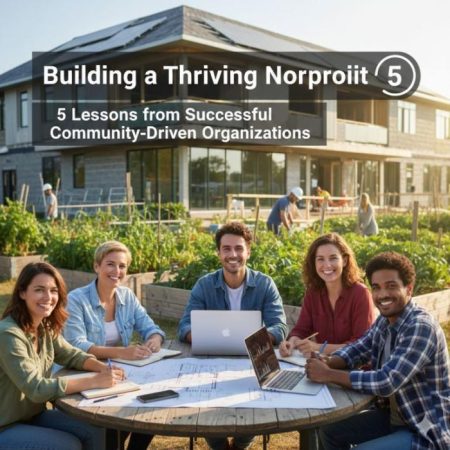The importance of friendship in the workplace
Friendship at work plays a crucial role in the emotional well-being of employees and overall team dynamics.
Researchers at Comparably, a startup that conducted a study on workplace friendships with 33,000 professionals in the technology industry, highlight that having friends at work is essential not only for personal satisfaction but also for career development.
According to the survey, more than half of respondents said they have a best friend in the workplace. Specifically, executives (66%) and human resources professionals (65%) are the ones who most reported having close friendships in the professional environment.
On the other hand, professionals in the information technology (53%) and legal (52%) areas are the ones who least establish significant friendships at work.
The survey also revealed that the likelihood of having a best friend in the workplace decreases as people age. Participants between the ages of 18 and 30 reported the highest percentage of friendships (62%), while workers aged 50 and over had the lowest rates (50%).
According to an analysis by Comparably, this difference can be attributed to the fact that older people generally have more responsibilities both at work and in their personal lives .
This means that they have less time available to socialize and develop close relationships in the workplace, such as having a friend, for example.
However, those still working at age 60 showed an increase in friendships, likely because they have already reached the peak of their careers.
Having friends at work provides significant emotional support, becoming a source of comfort, encouragement, and understanding during times of stress or personal difficulties. In addition, it also collaborates to:
- More welcoming and positive climate: camaraderie and trust between colleagues create a more pleasant and motivating atmosphere, which can improve job satisfaction and engagement;
- Effective collaboration: proximity and empathy between co-workers promote more fluid and productive communication, allowing for a more open exchange of ideas and facilitating teamwork;
- Stress Reduction: Sharing experiences and challenges with close colleagues can help relieve the pressure and tension associated with work, creating a healthier and more balanced environment.
- Fostering creativity and innovation: in an environment where people feel comfortable expressing their ideas and opinions, creativity is encouraged, resulting in more innovative solutions and original approaches;
- Talent retention: Employees who feel supported and connected with their colleagues are more likely to stay with the company longer, strengthening team stability and continuity.
Friendships in the work environment also strengthen team ties, creating greater cohesion and unity in the group. This can lead to better performance and more positive results in teamwork.
However, it is important to balance workplace friendships with professional boundaries and ethics.
“To prevent the career from being compromised by work relationships, the professional must be mature enough not to mix up the relationship.
For this to happen, it is necessary to separate the professional from the personal, differentiate friendship from protection, not limit corporate relationships to friendships, avoid exposing problems in the work environment, avoid intimate jokes, and be open to new friendships”, says Fernanda Schröder, national manager of careers at Ibmec.
Managers must encourage a healthy and inclusive work environment where friendships can flourish without jeopardizing productivity or equal treatment of employees.
In addition, it is important to ensure that friendships do not interfere with management decisions or negatively affect teamwork.
By creating an environment conducive to the development of healthy friendships at work, companies can reap the benefits of a united, engaged and motivated team.
Benefits of Fostering Friendships at Work

Promoting healthy friendships at work has many benefits for individual employees, as well as for the team and the company as a whole. Some of the main benefits include:
- Emotional support: Having friends in the workplace provides valuable emotional support. Co-workers can offer support, understanding, and encouragement in times of personal or professional difficulties;
- Well-being and happiness: the presence of friendships at work is associated with greater emotional well-being and job satisfaction. Having colleagues you can count on and share positive experiences contributes to a happier and more positive environment;
- Increased productivity: Friendship at work can improve team productivity. Relationships of trust and collaboration between colleagues favor more efficient work with fewer conflicts;
- Improved communication: Friendships at work tend to promote more open and clear communication between colleagues. Proximity and trust facilitate the exchange of information and problem-solving more effectively;
- Fostering teamwork: friendships in the workplace strengthen team ties, promoting cohesion and collaboration. This results in a team that is more united, efficient and willing to help each other;
- Improved organizational culture: promoting healthy friendships at work contributes to a more positive, empathetic and inclusive organizational culture, where values of respect and mutual support are strengthened;
- Good interpersonal relationships: friendship in the work environment can establish deeper and more meaningful interpersonal relationships, making the work environment more pleasant and stimulating.
Friendship at work: Tips to build a culture of collaboration and communication!
Here are important tips for building a culture of friendship at work:
Tip 1: Foster a welcoming environment for friendship at work
Fostering a welcoming environment to promote friendships at work requires conscious and strategic actions to create an organizational culture that values proximity among employees.
First, it is essential to encourage open and transparent communication , creating an environment of trust where employees feel comfortable sharing ideas, concerns and opinions.
In addition, promoting social activities and events within the company, such as group lunches, happy hours and get-togethers, provide opportunities for employees to get to know each other better outside the work environment, strengthening personal ties.
Online, virtual decompression rooms can be created , places offered to employees so that they can relax and disconnect from work for a while, so that they can recover their energies and return to work much more focused. Some suggestions for decompression rooms could be:
- Happy hours: promoting online meetings with the team that are not intended for work matters can be a good idea to engage the team and strengthen ties;
- Yoga and meditation: these are sessions that can be held in a virtual group, promoting the relaxation of the entire team;
- Conversations with mental health professionals: Offering group talks for the team can be a great opportunity to offer useful knowledge to your team. In addition to mental health, personal finance tips, awareness of toxic masculinity and other relevant guidelines may also be offered;
- Team games: Virtually, it is also possible to create games to engage employees: logic challenges and other interactive games can be a good option.
Likewise, establishing integration activities for new employees makes it possible for them to feel welcome and have the opportunity to get to know their co-workers in a relaxed way.
Valuing teamwork and recognizing collaborative efforts also contributes to closer interpersonal ties.
Tip 2. Encourage collaboration on projects and tasks
Encouraging collaboration in projects and tasks is a fundamental strategy to promote teamwork and achieve more efficient and innovative results.
When employees work together on projects and share ideas, skills and knowledge, significant benefits arise for both the company and the individuals involved.
Collaboration brings diversity of ideas, as each team member has different perspectives and experiences. This combination of knowledge can lead to creative and innovative solutions to the challenges faced.
In addition, collaboration allows for the complementarity of skills, as each employee has unique skills that can contribute to the success of the project.
By working as a team, tasks can be evenly distributed, speeding project completion.
The exchange of knowledge and the division of responsibilities also helps to avoid rework and errors, as collaboration also encourages continuous learning, as employees have the opportunity to learn from each other, sharing knowledge and experiences.
This constant exchange of information stimulates the professional development and individual growth of team members.
Another key benefit of collaboration is improved decision-making.
When discussing ideas as a team, decisions are based on different perspectives, which can lead to more informed and assertive choices.
In addition, complex projects benefit from collaboration between different areas of expertise, allowing them to tackle more difficult challenges and find more comprehensive solutions.
By sharing experiences, supporting each other and developing a welcoming and collaborative environment, employees build deeper and more meaningful relationships, contributing to a more harmonious and motivating work environment.
Tip 3. Promote open and transparent communication
Effective communication is critical to developing friendships at work, as it lays the foundation for mutual understanding, trust and connection between employees.
When communication is open and transparent, team members feel more comfortable expressing their thoughts, ideas and concerns, which facilitates the establishment of stronger emotional bonds.
In addition, clear and honest communication promotes mutual respect and a supportive culture, creating an environment conducive to the development of healthy and trusting relationships.
To promote open and transparent communication in the work environment, it is possible to adopt several practices that encourage dialogue and the exchange of information among employees.
Regular meetings are an excellent way to promote communication , allowing team members to discuss projects, share ideas and clarify doubts. These meetings also create a space for employees to get to know each other better and develop a deeper understanding of one another.
It is also important to establish efficient communication channels , such as emails, chats or collaborative platforms, to facilitate contact and exchange of information between team members, even when they are working remotely or in different locations.
Constructive feedback is another important practice to promote open communication.
Encouraging employees to give and receive feedback in a respectful and constructive way allows them to grow professionally and develop a trusting relationship with each other.
Through feedback, employees can recognize their strengths and areas for improvement, becoming more open to new perspectives and joint growth.
With open and transparent communication, the development of friendships at work is fostered, contributing to a more cohesive, engaged and productive team.
Tip 4. Encourage sharing of personal interests
Knowing about colleagues’ interests and hobbies goes beyond professional tasks and allows employees to connect on a more personal level. This genuine connection increases empathy and mutual understanding, creating a more welcoming and friendly environment.
As colleagues share their interests, they discover common affinities, which can result in joint activities and a sense of belonging to the group.
Also, by getting to know your colleagues better, you can identify opportunities to support each other on personal issues or shared interests, creating a sense of camaraderie and solidarity.
To encourage the sharing of personal interests, companies can adopt a number of initiatives.
Creating interest groups is an effective way to bring together employees who have similar interests, such as sports, reading, music, cooking or any other hobby. These groups can organize regular meetings to exchange experiences, discussions or even activities related to the interests in question.
Hosting themed events is also a fun way to encourage shared interests. Events such as Sports Day , Literary Week , Culinary Festival or Talent Show provide a space for employees to expose and share their interests and skills with colleagues.
Holding informal moments can also be beneficial. For example, allowing employees to have a moment during the week to get together and talk about non-work related matters, whether during lunch hours or at happy hour, promotes a relaxed and friendly environment, facilitating the sharing of personal interests.
Another possibility is the creation of a virtual space or wall where employees can share their interests , photos or experiences, allowing everyone to have access and interact in a more open environment.
Tip 5. Encourage Collaboration Outside the Workplace
Social activities outside of work allow employees to share leisure time, interests and experiences, creating a deeper and more meaningful connection.
These informal interactions also help build trust and mutual respect, as well as create positive memories that contribute to a more harmonious and collaborative work environment.
There are several ideas for encouraging collaboration outside the workplace. A classic example is the happy hour, where colleagues can get together after hours to talk, relax and have fun in a more relaxed atmosphere .
This practice allows employees to strengthen their bonds of friendship, share experiences and celebrate their joint achievements.
Another option is participation in sporting events , such as football tournaments, races or walks. In addition to promoting the health and well-being of employees, these activities create a sense of teamwork and camaraderie, strengthening collaboration and friendship among participants.
Volunteering activities are also great opportunities to encourage collaboration outside of work . Participating in social actions together strengthens team spirit and a sense of purpose, as well as allowing employees to make a positive contribution to the community.
Other ideas include cultural outings, such as visits to museums, exhibitions or local cultural events , which provide moments of shared learning and relaxation.
It is important to emphasize that activities outside the work environment must be voluntary and inclusive, so that all employees feel free to participate.
In addition, it is essential to ensure that these activities do not interfere negatively in the personal life of employees, respecting their family and individual commitments.
Tip 6. Value and recognize individual contributions
When employees feel appreciated and recognized for their achievements and efforts, it strengthens their self-esteem and self-confidence, which positively impacts their interpersonal relationships.
Public recognition of individual achievements creates an environment of mutual appreciation, where colleagues are motivated to support and celebrate each other’s successes.
Such recognition not only establishes a culture of gratitude and respect, but also contributes to building bonds of trust and camaraderie among team members.
The feeling of being valued and recognized by the group is a powerful incentive for the development of authentic friendships in the work environment.
There are several strategies to value the individual contributions of employees.
Public praise is a simple and effective way to show recognition . Leaders and peers can praise work well done during team meetings or in an internal communication channel, highlighting individual achievements and skills that contributed to a project’s success.
Reward programs are also an effective way to value employee contributions . This can include recognition systems through points or awards, where colleagues can nominate and praise each other for excellent performance or for helping in critical moments.
In addition, investing in the professional development of employees is a valuable way to demonstrate appreciation . Offering training opportunities, workshops or mentoring allows employees to improve their skills and grow professionally, showing that the company recognizes the potential of each one.
Another way to value individual contributions is to listen carefully to employees’ ideas and suggestions . By giving space for them to express their opinions and feel heard, the company demonstrates respect and values the diversity of perspectives.
It is important that the recognition is genuine and personalized, taking into account the individual achievements and effort of each employee.
Recognition doesn’t just have to be in relation to great accomplishments, but can also be directed towards everyday efforts that contribute to the success of the team as a whole.
Tip 7. Establish a policy of respect, empathy and friendship at work
Empathy, which involves the ability to put yourself in another’s shoes and understand their emotions and perspectives, allows team members to connect in a deeper and more authentic way.
This culture of respect and empathy also contributes to building solid and trusting relationships, encouraging teamwork and collaboration.
To establish a policy of respect and empathy at work , it is important to implement practices that promote awareness and appreciation of diversity and inclusion in the work environment.
Awareness training are a powerful tool to increase understanding of issues related to respect, empathy, and diversity. These trainings can address topics such as unconscious biases, assertive communication, conflict management, and the importance of active listening.
In addition, it is essential to adopt anti-harassment policies, which make it clear that any form of inappropriate or discriminatory behavior will not be tolerated in the company. These policies must be well-defined, accessible to all employees and accompanied by whistleblowing and conflict resolution procedures.
Tip 8. Lead by example
Leaders have the ability to influence organizational culture, and by demonstrating positive behaviors and values centered on human relationships, they can inspire employees to connect in more authentic and meaningful ways.
When leaders value the importance of interpersonal relationships, respect, empathy, and collaboration, it creates an environment conducive to the formation of bonds of friendship among team members.
In addition, leaders have the opportunity to encourage open communication, exchange of ideas and teamwork, promoting the construction of solid and positive relationships in the work environment.
To be examples of collaboration, communication and friendship at work, leaders can adopt some practices:
- Demonstrate empathy and genuine interest in employees , getting to know their aspirations, challenges and personal interests. This creates an environment where employees feel valued and supported;
- Encourage teamwork by promoting collaboration among team members and valuing each member’s individual contributions;
- Encourage open and transparent communication , creating an environment where employees feel comfortable expressing their ideas, concerns and opinions;
- Promote informal moments of interaction between the team , such as lunches, coffees or happy hours, to strengthen interpersonal ties and create a more relaxed environment;
- Demonstrate respect and equity in the treatment of all employees , regardless of positions or hierarchical levels;
- Stimulate the recognition and appreciation of individual achievements and efforts , publicly praising the positive contributions of employees;
- Foster diversity and inclusion , valuing differences and promoting an environment of respect and equality for all;
- Be examples of active listening , showing interest and attention to colleagues during conversations and meetings;
- Promote constructive conflict resolution , helping the team to deal with challenges collaboratively and empathetically;
- Invest in your own development of interpersonal skills , seeking to improve as leaders who inspire and promote healthy relationships in the workplace.
Tip 9. Phrases of friendship at work
Endomarketing, also known as internal marketing, is a strategy that seeks to promote actions of communication and appreciation of employees within the company.
Creative internal marketing actions aim to strengthen the bond between the organization and its employees, creating a more motivating, welcoming and engaging work environment.
Certainly, internal marketing can be effective in promoting friendship at work, because by stimulating interaction, collaboration and recognition among employees, interpersonal relationships are strengthened and friendships can develop.
Here are some friendship phrases at work that can be sent to employees:
- “Friends at work are the perfect recipe for a happy and productive environment. Thank you for being part of this close-knit team!”
- “We value not only what you do, but who you are as a person. Your friendship is a treasure to all of us.”
- “On this professional journey, we gained not only colleagues, but true work friends. We thank you for your dedication and friendship!”
- “Here, we find much more than colleagues: we find true friends, who support us and make everyday life special.”
- “Friendship is built on trust and mutual respect. Our team is an example of how true ties make a difference at work!”
- “Teamwork gains a special touch when friendship is present. Together we are stronger!”
- “Thank you for being more than a co-worker: a friend who makes every day lighter and more fun.”
- “Here, we find not only a job, but a family of friends that makes working an amazing experience.”
- “In the work environment, we cultivate friendly relationships that motivate and inspire us to grow together.”
- “Friendship is the secret to building a united team, where everyone supports each other and shares moments of success.”






